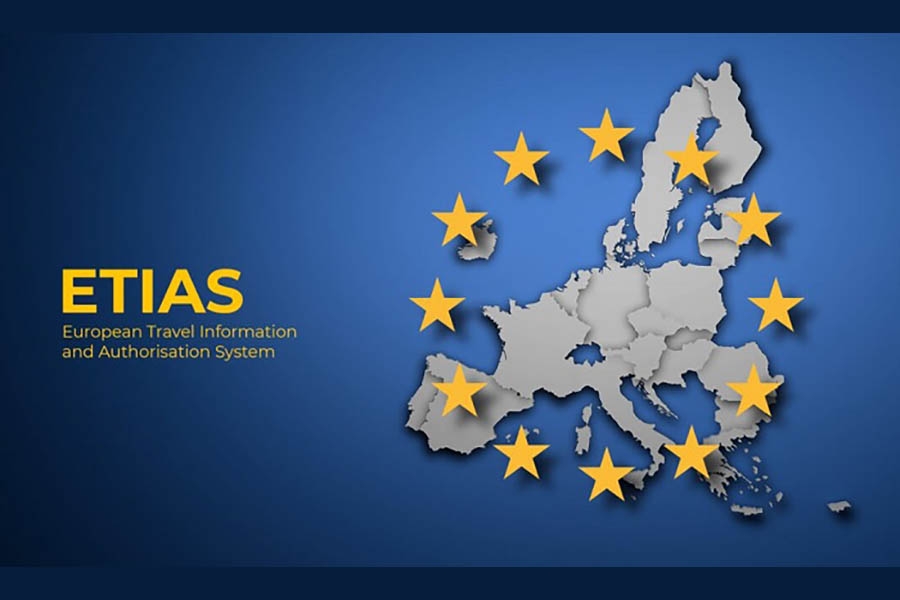Starting next year, travelers from the Western Balkans will have to fill out an application for entry into the EU and the Schengen zone. It is a new type of security authorization called ETIAS, which will cost 7 euros. The news, which will undoubtedly change travel in the EU, besides representing a new financial burden for citizens of third countries, is also the target of misinformation in this period.

Starting next year, travelers from the Western Balkans will have to fill out an application for entry into the EU and the Schengen zone. It is a new type of security authorization called ETIAS, which will cost 7 euros. The news, which will undoubtedly change travel in the EU, besides representing a new financial burden for citizens of third countries, is also the target of misinformation in this period.

In recent days, the citizens of the Western Balkans have been looking with nervousness and mistrust at the announcements about the establishment of the new European Travel Information and Authorization System (ETIAS) for entering the Schengen area, which should be established sometime at the beginning of next year 2024.
It is a new type of authorization for entering EU countries and the Schengen zone, which will cost 7 euros. The European Commission is determined and says that the fee charged through the ETIAS system does not mean the introduction of a new visa regime.
The system, the implementation of which has been delayed several times so far, as Brussels says, refers only to increasing security within the Union in response to the global increase in terrorist and criminal activities and does not represent any "fence" for the Balkans.
However, the news that will change the journey to the EU, apart from representing a new financial burden for citizens of third countries who want to enter the Union, the same past period is the target of a disinformation campaign by various influential centers who, among other things, say that this last step in EU practice means the introduction of a new visa regime for citizens from the Western Balkans.
The "Washington Post" writes that filling out this form is not complicated and does not represent any new restrictions for people who are outside Europe and want to travel to EU countries. According to the American magazine, from 2024, travelers wishing to enter the EU will have a new hoop to jump through before embarking on their journey.
Under new travel authorization rules published by the EU under the European Travel Information and Authorization System, potential visitors from more than 60 "visa-free" countries, including the US, must complete an online application and pay a small fee before traveling to any of the 30 European countries.
According to the Brussels magazine "EU Observer," the reasons for the current extension of ETIAS are the pandemic and the problems and delays of the system for automated cross-checking of applicants data with Europols information bases. As reported by the media, in addition to the fact that the European police system encountered "complex legal issues" for access to the data of the applicants, the EU currently has a shortage of personnel who will have to implement the work of the ETIAS system in the field.
Namely, the EU plans to tighten the policies for joining the Union and, to some extent, tighten the advantages the candidate countries have, primarily from the Western Balkans region. The European Union is expected to start implementing the ETIAS system in six months. ETIAS stands for European Travel Information and Authorization System. It is a fully electronic system that enables and keeps records of visitors from countries that do not require a visa to enter the Schengen zone. In some ways, it resembles the US Electronic Travel Authorization (ESTA) system, which serves a similar purpose.
According to ETIAS, travelers must provide proof of their identity, send a copy of their travel document, and answer a series of questions about the reason for their travel, their property and family status, criminal history, residence in conflict countries, and other sensitive topics. A fee of 7 euros will be charged for applying for ETIAS for all travelers aged 18 to 70. The application should be sent 96 hours before the travel date. Registration is free for minors and people over 70 years old.
The approval from ETIAS will be valid for three years; during that period, the number of trips to EU countries is not limited. With the ETIAS permit, Macedonian citizens can stay in the EU for a maximum of 90 days in six months. Unlike the current model, where citizens of Macedonia and other Balkan countries, except Kosovo, can generally freely cross the borders of EU members, according to the ETIAS model, they will have to wait for the answer of the country they want to travel to, which may be negative.
Although announced as a security measure to control, first of all, illegal migration to the EU, the introduction of the ETIAS-movement permit has caused additional skepticism in Macedonia and the region, especially with the spread of falsehoods that say that the opening of the system is a new ramp for the area.
Political scientist Milan Stefanovski says that in this sensitive moment for North Macedonia, when constitutional amendments are needed for our progress on the road to the EU, citizens should be careful with information about freedom of movement in Europe.
- The manipulative twisting of information and facts when introducing the ETIAS system by some political centers in the country and the region is more than clear why this is happening now. Someone needs the region to remain outside the EU. This information and news about visa policy is used to portray the system as a new closing of the EUs borders towards the Balkans. On the contrary, Brussels recently confirmed that enlargement with the Western Balkans countries remains the focus of the EUs interest. In the last year, the EU has spent a lot of energy to restore the trust of the Western Balkans countries, which has concretely shown its help in dealing with the energy crisis and the pandemic. The eventual introduction of ETIAS is related to the security challenges of the EU to reduce illegal migration through the candidate countries for membership, which have a visa-free regime, but this in no way means giving up the policy of expansion - Stefanovski assesses.
He adds that although there are member states of the Union with right-wing governments in Brussels, they are still unable to impose the policy of closing the EUs borders towards the Western Balkans as official.
Otherwise, the ETIAS application will require biometric passport data, a digital photograph, information about the country the traveler is traveling to, and questions about health, previous immigration trips, and the travelers criminal record or drug use. ETIAS will not request vaccine or hospitalization data for COVID-19. The travel permit does not need to be authenticated after approval.
Applications will be automatically processed based on three factors. It will be checked whether the identity matches the passport, whether the data in the passport matches the other data in the form, whether it is a valid passport, and whether the answers to the basic questions match the data in the EU database.
North Macedonian Media Partner Link: https://www.slobodenpecat.mk/novite-pravila-za-vlez-vo-eu-ne-znachi-vrakjanje-na-vizite-za-balkanot/
In all societies there are issues that are rather being skipped. Certain...
The neoliberal path, started in 2001, has led to especially bad results in Serbi...
For centuries, the region was subsumed within the Ottoman and Hungarian Empires,...
"Serbia has returned to the systemic and anti-systemic position of the political...
In reality, Serbia is closer than ever to NATO. In the course of the last five y...